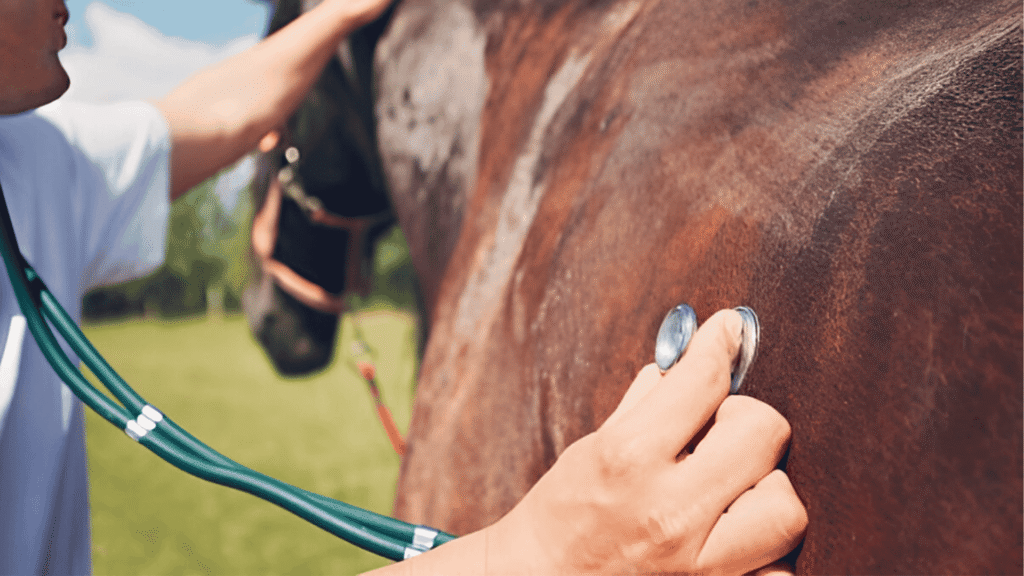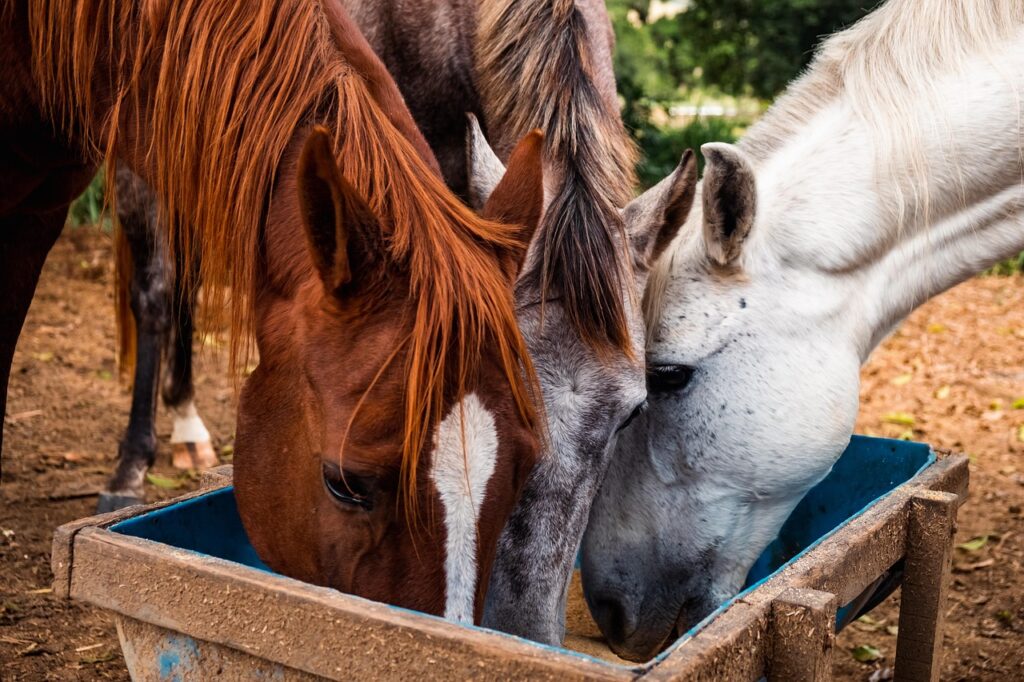As a horse owner, your horse’s health and happiness is of primary concern that must be taken care of with proper attention and precautions. Ranging from grooming sessions to managing intricate medical conditions, equine veterinary care is an integral element in enabling horses to lead healthy, long, and comfortable lives.
Being an equine health specialist veterinarian, I understand the finer nuances of caring for horses with the best and I’m here to help you with some very important tips on how to keep your horse healthy and happy.
In this article, we will discuss the top equine veterinary care tips to help you provide the maximum care to your horse. Whether you are a seasoned horse owner or a novice enthusiast, the following tips are designed to be informative, practical, and easy to implement.
Understanding the Importance of Equine Veterinary Care
Equine veterinary medicine goes beyond treating illness. Routine checks, vaccinations, emergency care, and preventative treatments are all part of promoting overall health and performance in your horse. Veterinary medicine encompasses numerous specialties including routine health checks, dental health, care of the hooves, nutrition, and management of long-term diseases like arthritis and respiratory disease.
Moral of the story: Regular visits to the veterinarian as part of your horse care routine can catch early signs of potential problems and nip them in the bud before they become full-fledged problems. This is preventative and benefits the physical, emotional, and even competitive well-being of your horse.
1. Regular Health Check-ups: The Foundation of Preventive Care
One of the building blocks in equine veterinary care is keeping your horse in check with regular health check-ups. The check-ups allow the veterinarian to monitor your horse’s overall health, physical condition, and signs of illness in its earliest stages. Regular check-up typically includes:
- Physical Examination: Taking vital signs, weight, coat condition, and overall body condition.
- Vaccinations and Deworming: Getting your horse vaccinated for common diseases such as equine flu, tetanus, and West Nile virus.
- Blood Tests: These can detect underlying issues such as anemia, metabolic illness, or infection.
- Joint Health: Regular testing for arthritis, common in older horses or horses involved in high-stress disciplines.
Periodic health check-ups not only ensure that your horse is healthy and not suffering from major diseases, but also detect minor problems that are not necessarily obviously recognizable to the untrained eye.
2. Equine Nutrition: Powering Your Horse’s Health
A balanced diet is essential to the health of your horse. Proper nutrition gives your horse all the nutrients needed for development, upkeep, and performance. There are some points to consider:
Provide High-Quality Forage
- Grass and Hay: These should be the mainstay of your horse’s diet. Fiber-rich foods such as alfalfa or timothy hay allow for healthy digestion.
- Pasture Access: If possible, allow your horse to graze on high-quality pasture. However, be mindful of the quality and type of grass, as some may not be suitable for all horses.
Add Grains and Concentrates When Necessary
- Horses that require more energy due to high activity levels may benefit from grain-based concentrates. These provide additional calories and nutrients.
Hydration
- Always provide your horse with access to clean, fresh water. Dehydration is responsible for a multitude of health issues, including colic and kidney disease.
Supplements
- Based on your horse’s individual needs, your veterinarian may suggest certain supplements, like joint support or vitamins, to add to your horse’s well-being.
3. Hoof Care: Guarding the Foundation of Your Horse
Your horse’s hooves are vital to its overall condition and well-being since they bear movement and function to keep it from getting hurt. Declined hoof health can lead to serious conditions like lameness or infection. What you can do to protect your horse’s hooves:
- Maintenance Trimming: Regular hoof trimming by a skilled farrier is crucial for horses, every 6-8 weeks. Proper trimming prevents overgrowth and maintains balance.
- Watch for Hoof Problems: Check the hooves for cracks, bruising, or any infection. Thrush and abscesses can cause your horse to be uncomfortable and in pain.
- Horse Shoes: Depending on how much use your horse gets and what surfaces they are going to be walking upon, your veterinarian or farrier may recommend horseshoes to aid in protection and keeping them comfortable.
4. Dental Care: Having a Healthy Mouth
Dental care is regularly overlooked, but it is as important as any other aspect of equine vet care. Horses grind food with their teeth to properly break down food, affecting digestion and overall health. Irregularities in teeth, being overgrown or diseased, can lead to problems such as weight loss, colic, and even behavioral issues.
- Annual Dental Check-ups: Get yearly dental check-ups to evaluate for sharp points, tooth rot, or irregular bite.
- Floating: Horses commonly require that their teeth “float,” that is, that sharp edges be filed down to prevent pain while eating.
5. Exercise and Weight Management: Keeping Your Horse Fit
Exercise is essential to your horse’s physical fitness, particularly if your horse is ridden or competitively used. But keeping your horse at the right weight is equally important.
- Regular Weight Monitoring: Weight gain in horses can lead to joint stress, metabolic disease, and laminitis. Regularly monitor your horse’s weight and adjust their feed accordingly.
- Regular Exercise: Regular turnout and exercise will ensure that your horse’s muscles are toned and flexible. Adjust the exercise routine based on your horse’s age, breed, and level of activity.
6. Vaccinations and Parasite Control: Preventing Disease
One of the simplest but most important parts of equine veterinary care is ensuring your horse receives its vaccinations and has a proper parasite control program.
Vaccinations
- Core Vaccines: These are required on all horses and include vaccines against tetanus, Eastern and Western equine encephalomyelitis, West Nile virus, and rabies.
- Risk-Based Vaccines: Depending on where you live and how your horse is being used, your veterinarian will recommend vaccines for such illnesses as equine influenza and strangles.
Parasite Control
- Regular deworming must be accomplished to prevent infestations of parasites. Your vet can utilize a fecal egg count test to tailor a deworming schedule to meet the specific needs of your horse.
7. Recognizing Early Signs of Illness: What to Watch For
Being a horse owner, you need to know the first signs of illness so you can immediately seek veterinary care. Some common signs that may indicate illness are:
- Lethargy or Decreased Activity: If your horse is very tired or does not want to walk, it may be in pain or sick.
- Changes in Appetite: Loss of appetite or eating less could be caused by digestive issues or dental problems.
- Behavior Changes: A well-mannered horse that suddenly becomes nervous or aggressive could be in pain.
- Symptoms of Colic: Abdominal pain is severe and requires immediate veterinary attention.
Frequently Asked Questions (FAQs)
How often should I schedule a veterinary check-up for my horse?
Annual routine check-ups are standard, but your horse will require more visits depending on its age, lifestyle, and condition.
What can I do if my horse is exhibiting colic symptoms?
Colic is a veterinary emergency, and you need to contact your veterinarian immediately. Symptoms involve rolling, pawing at the ground, and inability to pass feces.
Can I administer over-the-counter medication to my horse?
Always consult with your veterinarian prior to medicating your horse. There are certain human over-the-counter drugs that are dangerous for horses.
Conclusion: Caring for Your Horse’s Health
Taking care of a horse is an ongoing process consisting of constant care, dedication, and working together with your veterinarian. By remembering these top tips, you can keep your horse healthy, contented, and happy throughout its life.
Do not hesitate to call your veterinarian in case of questions or concerns about your horse’s health. Regular inspections, proper feeding, dental maintenance, and training are just some of the ways in which to do the best for your horse.

Dr.Vala Siddharajsinh Raysinhbhai is a certified Animal Husbandry Technician, holding a diploma from Kamdhenu University, India. His expertise covers livestock breeding, nutrition, disease control, and animal welfare. Passionate about rural veterinary care, he actively contributes to animal health awareness and sustainable livestock management through both fieldwork and educational content.





